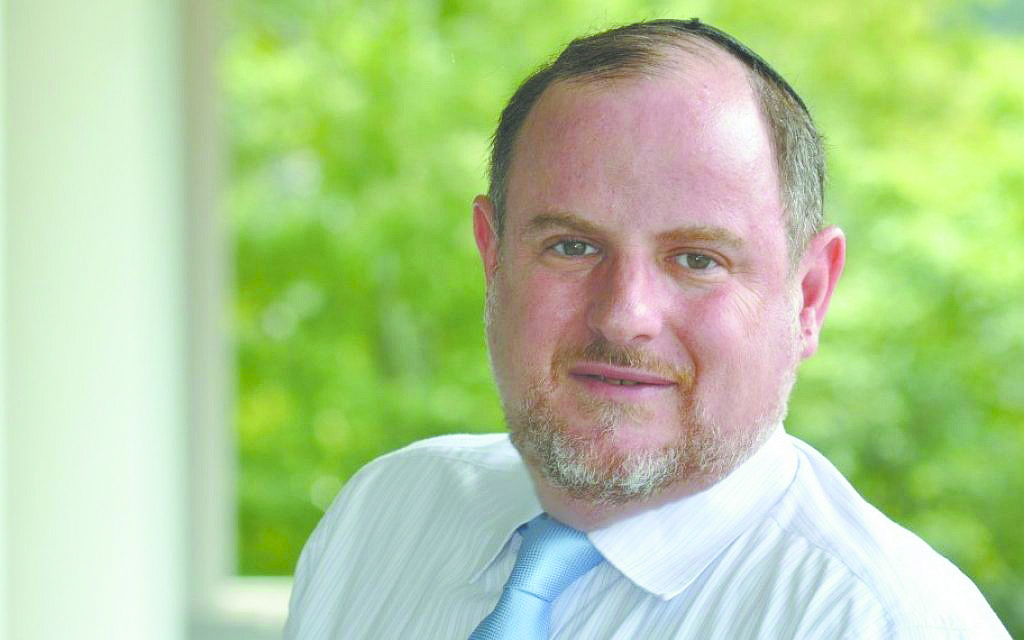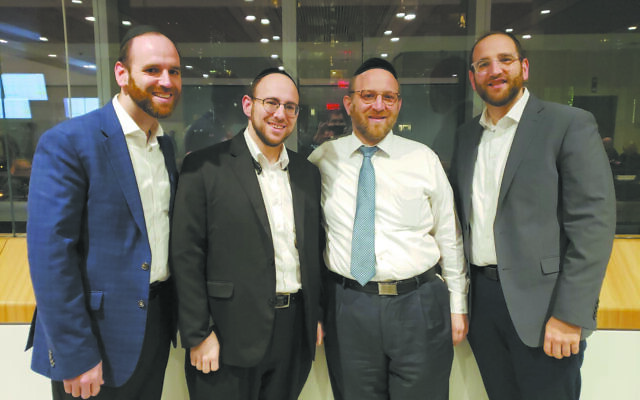Can Jews Donate Organs?
In December, Atlanta Rabbi Mayer Freedman donated one of his kidneys to a New York grandfather, helping to prolong his life and improve its quality.
In December, Atlanta Rabbi Mayer Freedman donated one of his kidneys to a New York grandfather, helping to prolong his life and improve its quality. Freedman and his three brothers made a pact to each donate a kidney in honor of their father, who lived for 10 years after a successful heart transplant before dying of pancreatic cancer in 2018.
One brother donated his kidney in July, another is scheduled for March, and the last brother is waiting to be matched with a recipient.
Donating a kidney can be compared to donating blood or bone marrow by the vast majority of authorities on Jewish law. They agree with medical experts that we can live well with one of our two kidneys and that the surgery is relatively minor without lasting repercussions. That’s why the brothers chose to donate kidneys.
They also knew the need for organs is great. More than 5,300 Georgians are waiting for a kidney, pancreas, heart and/or liver transplant, according to LifeLink of Georgia, the state’s main organ procurement organization. One organ donor can potentially save the lives of up to eight people and one tissue donor can change the lives of up to 75, LifeLink reports.
There are risks with any surgery. Freedman developed a blood clot in his lungs after his kidney removal surgery at New York University, but he was told it was a very rare complication. Earlier this month when he returned to NYU for a checkup, he coincidentally met the only other known donor through the New York-based Renewal – a private Jewish organ donation registry – to have the same minor setback.
While kidney donations from live Jewish donors have gained popularity in Orthodox circles locally and beyond, donating organs at death remains a contentious subject, with differences of opinion among Jewish authorities and no consensus.
The AJT consulted a number of experts in Jewish law, death and organ donation about the topic.
The Jewish perspective about live donations hasn’t changed; science has, said Rabbi Michael Broyde, an Emory University law professor known as an expert on Jewish law and ethics. “It’s not a change in principles, but an appreciation of data” that supports it, he said. “Consensus develops when scientific change develops and people see the facts. As science improves, the mitzvah (good deed or commandment) becomes easier and the consequences are diminished, Broyde said.
“Medicine has dramatically improved to show that live donations are safe. Everybody should be encouraged to do them.”
Broyde added that Judaism mandates saving a life if there’s little pain or risk to do so. “If you come to me and say, ‘your blood marrow is a match for me,’ I feel compelled” to donate. “It’s trivial on my part and life-saving to someone else.”
He explained further, “You don’t have to jump in a river to save someone. You might drown.” But if the chances of drowning are slim, it’s a mitzvah to save a life, Broyde said.
On the other hand, there’s no agreement among Jews on harvesting organs after a person is declared brain dead. Most medical and legal authorities accept brain death as death, and organs can be donated at that point as long as there’s a recipient and the body is kept on a ventilator, said Cassie Borderieux, a liaison between LifeLink of Georgia and the coroner or funeral home, including Dressler’s Jewish Funeral Care.
Jewish authorities differ as to whether brain dead is really dead, and if it’s not, whether removing organs at that point is tantamount to committing murder, Broyde said. “It’s sinful to kill a person, but not a sin to desecrate the dead to save a life.”
Broyde detailed the debate among Jews on the subject.

“Some Jewish law authorities rule that when total and complete brain death takes place, a person is then legally dead as a matter of Jewish law, even if their heart is still beating and their lungs are still breathing,” he said.
“Others rule that when total and complete brain death takes place, a person is then legally dead as a matter of Jewish law, even if their heart is still beating and their lungs are still breathing artificially (respirator/thumper). Yet others rule that even when total and complete brain death takes place, a person is not legally dead as a matter of Jewish law so long as their heart is still beating and their lungs are still breathing. Yet others rule that even when total and complete brain death takes place, a person is not legally dead as a matter of Jewish law so long as either their heart is still beating or their lungs are still breathing.”
Waiting for a “cardiorespiratory” death means the organs are likely no longer functional, he added. “If we could dig up all dead people and save lives, we’d dig them up.”
So the debate continues about whether a brain death ruling is sufficient. “I would say slowly more brain-dead donations will be allowed.” In the meantime, Jews faced with the decision should do their own research.
Noticing a lack of information about organ donation and the Jewish laws surrounding it, Jewish funeral director Eddie Dressler started a new website, DonateOneEight.com (18 is chai or life). “The goal is to educate the local Jewish community about organ donation. I feel like we should do our research about what it is, the benefits and drawbacks to it,” said Dressler, owner of Dressler’s Jewish Funeral Care.
DonateOneEight will provide general information, explain what organ donation is, and provide Reform, Conservative and Orthodox views, he said.
“It’s important to me that the Jewish community is educated about donation and I don’t see anyone providing a resource.” He said most people learn about organ donation when they are faced with a life and death situation, but his website will help arm them with organ donation information long before that time, to make informed decisions.
“I don’t want the Jewish community to feel pressured when they’re dealing with death. We need to educate them in advance, before they have to consider it.”
For Freedman, rabbi of Congregation Anshi S’fard, donating a kidney, despite the resulting complication, was “totally” worth it.
“It’s very scary sounding,” he said of the blood clot, “but really it’s not such a big deal. It was painful for me when I developed the clot, but once I was back on pain medications, I felt fine.” He said he was off those within a few days and back to a full work schedule within two weeks.
“It’s the most amazing feeling in the world to help save someone’s life. There’s very little that compares to that. When one donates a kidney, they not only give the recipient back their life, they also prevent the recipient’s [wife or husband] from losing a spouse, the recipient’s children from losing a parent and the recipient’s other relatives from losing a grandparent, sibling or even child.”
Freedman also helped improve the recipient’s quality of life. Before he received Freedman’s kidney, when he finally felt like he recovered from one bout of dialysis, it was time for the next session.
The experience was enriching for Freedman’s family too, he said. “I want my [six] children to be givers, and what better way to teach that to them than for them to see me give of myself to help someone else? … It’s such an amazing opportunity to teach children what’s important in life.”




comments